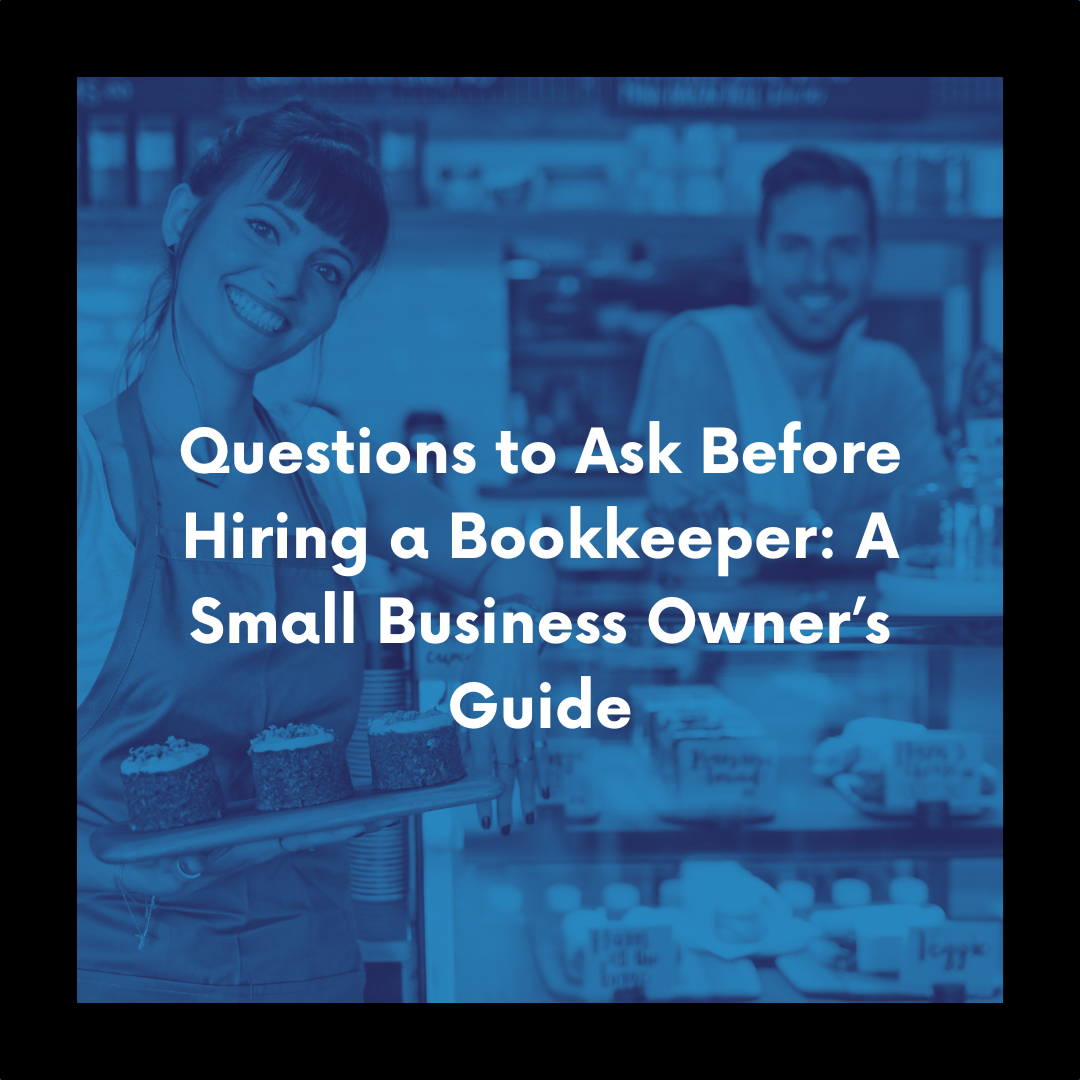Questions to Ask Before Hiring a Bookkeeper: A Small Business Owner’s Guide
Hiring a bookkeeper is one of the smartest decisions you can make for your small business. Whether you're drowning in receipts, behind on invoicing, or just tired of guessing your financial position—solid bookkeeping support can change everything. But before you hand over your books, it’s important to ask the right questions.
You don’t want to trust just anyone with your financial data, right? A great bookkeeper can keep you organized, on track, and out of trouble with taxes. Let’s walk through what you need to ask before making the hire—so you can feel confident your bookkeeping is in good hands.
Do You Have Experience With Businesses Like Mine?
Not all businesses are created equal. A retail shop, construction company, and online service provider have very different bookkeeping needs. It’s important to find someone who understands your specific industry.
If your bookkeeper already knows the ins and outs of your business type, they’ll work faster, make fewer mistakes, and offer better advice. Ask if they’ve worked with businesses in your industry and how they handled things like invoicing, sales tax, or payroll.
You might also ask what kind of clients they usually work with—startups, solo entrepreneurs, or multi-location businesses? Their answer can help you decide if they’re a good match for your current and future needs.

What Bookkeeping Software Do You Use?
Today, most bookkeepers use cloud-based software to manage their clients’ financial records. Popular tools like QuickBooks Online, Xero, and FreshBooks make bookkeeping easier, faster, and more transparent.
Ask what software your potential bookkeeper uses and if they’re certified in it. A tech-savvy bookkeeper who uses the right tools can save you hours of time and reduce errors. Bonus points if they’re comfortable integrating other tools, like payment processors, CRMs, or e-commerce platforms.
If you already use a system, check if they’re familiar with it. If not, find out if they’re willing to learn. Your bookkeeper should be able to jump in and get things running smoothly—not make more work for you.
📌 Tip: Ask if they provide access to the software, or if you’ll need to purchase your own subscription separately.
What Services Are Included—and What’s Extra?
Bookkeepers offer all kinds of services, and no two packages are exactly alike. Some will just handle the basics—like categorizing transactions and reconciling bank accounts. Others will go further and help with invoicing, payroll, inventory, or even budgeting.
Ask for a clear list of what’s included in their monthly fee and what costs extra. Do they offer year-end reports? Can they work with your CPA for tax prep? Will they chase overdue invoices? You don’t want to assume something’s included and be surprised by an extra bill later.
Clear communication now will save a lot of confusion later. And if your business is growing, it’s good to know how their services can scale with you.

How Will We Communicate and Share Documents?
Smooth communication is everything when it comes to managing your books. A great bookkeeper should make it easy for you to ask questions, share documents, and stay in the loop.
Ask how they typically communicate—do they prefer email, phone, Slack, or video calls? How often will they send reports or updates? Will you have a monthly meeting or just reach out when needed?
Also ask how you’ll send and receive documents. Many bookkeepers use secure cloud storage like Google Drive, Dropbox, or client portals. Others may prefer secure software that includes messaging and file-sharing in one place.
📌 Pro Tip: If they mention spreadsheets and shoe boxes, consider running away. You want someone who’s organized and efficient.
Can You Help Me Understand My Financial Reports?
A good bookkeeper doesn’t just crunch numbers—they help you understand what those numbers mean. After all, reports are only helpful if you know how to read them.
Ask if they’re willing to walk you through your profit and loss statement, balance sheet, and cash flow reports. Can they explain trends? Highlight red flags? Show you where you’re making or losing money?
The right bookkeeper becomes a financial partner, not just a data entry person. You want someone who helps you make better decisions—not just someone who files reports and disappears.

What Happens if I Get Audited or Need Tax Help?
Nobody likes the word "audit," but it’s better to ask upfront than scramble later. Your bookkeeper should have a plan for what happens if the IRS or another agency comes knocking.
Ask how they organize and store records, and how quickly they can provide documentation if needed. While most bookkeepers don’t do taxes, many work closely with accountants and can ensure everything is clean, organized, and ready for filing.
It’s also worth asking how they handle errors. If they make a mistake, will they fix it for free? Take ownership? Be transparent? A reliable bookkeeper should be proactive and professional, even when things go wrong.
Can You Grow With My Business?
Your business might be small now, but what about next year—or in five years? Ask your bookkeeper if they can scale their services as your business grows.
Can they handle more complex bookkeeping down the road? Do they have a team behind them? Will they support additional employees, multiple locations, or new income streams?
It’s much easier to grow with a bookkeeper than to switch later. Choose someone who sees your potential and is ready to grow alongside you.
What’s Your Onboarding Process Like?
First impressions matter—and that includes how your bookkeeper gets started. Ask what the onboarding process looks like.
Will they do a review of your current books? Do they provide a checklist or timeline? How long will it take to get everything set up and caught up?
A great onboarding experience sets the tone for a strong working relationship. You want someone who can jump in quickly and help you feel confident in your financial systems.
Final Thoughts: Your Bookkeeper Should Feel Like a Partner
Hiring a bookkeeper is more than outsourcing data entry—it’s inviting someone into one of the most important parts of your business. When you ask the right questions, you find someone who understands your goals, your numbers, and your vision.
Don’t rush the process. Take your time, ask smart questions, and make sure the bookkeeper you choose is someone you trust.
📌 Looking for a reliable virtual bookkeeper? Contact me at m.bol@mrm-bookkeeping to see how I can support your business. 🚀

